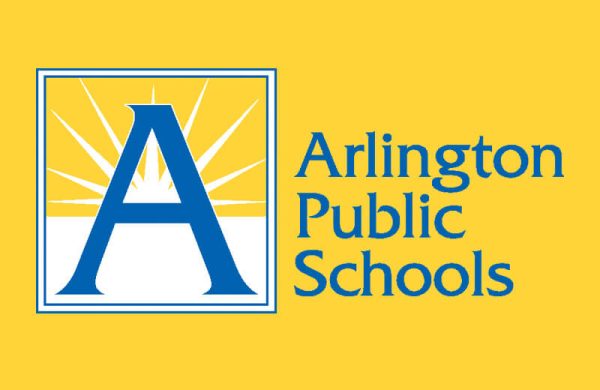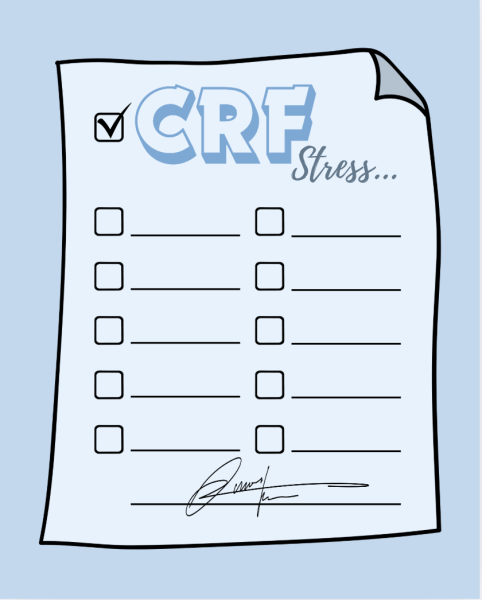Keeping up with the Omicron Variant
COVID-19 update: what you need to know

Vaccines are the most effective against infection
In the following days amid the holiday winter break, there was an increase in student and employee reported cases of COVID-19, according to the Arlington Public Schools coronavirus dashboard. In a YouTube video from UC Davis Health, Stuart Cohen, M.D. Chief for the Division of Infectious Diseases at UC Davis Medical Center, stated, “The most important thing about the Omicron [variant] is that it continues to be the evolution of COVID-19. The more people that get infected, the more likely we are to see variants come back behind it, and so this is a message to get people vaccinated.” All variants of COVID-19 can cause severe disease or death, in particular for the most vulnerable people, and consequently, prevention is always key.
According to the CDC, Omicron likely spreads more easily than the original COVID-19 virus. Omicron appears to be much more contagious compared to the Delta variant, as it quickly became the dominant strain in the U.S. The CDC said it expects that people can spread Omicron even if they’re vaccinated or don’t have symptoms. There are a few things that should be kept in mind about the Omicron variant.
Though much remains unknown about Omicron, experts at the Mayo Clinic say the variant could lead to long COVID, even with a mild case. Patients with long-term COVID symptoms can experience crushing fatigue, irregular heart rhythms, and other issues months after their initial infection. This first occurred during the first wave of the pandemic and has continued to lead to issues through the Delta wave. The speed at which Omicron spread suggests that it is much more contagious than Delta. Therefore, health officials have urged people to take extra precautions to avoid infection, even if they are vaccinated.
“The rate at which Omicron has taken over Delta is remarkable and shows how much more transmissible this variant is. What worked to avoid Delta infection may not be enough to prevent catching Omicron, so people should be vigilant with masking and distancing, and, of course, being vaccinated,” Dr. David Wohl of UNC Health advised in an interview with Raleigh, N.C.-based WRAL.com. The infection rates for this variant are incredibly high, and hospitals are still struggling to care for the patients that they already have. Despite the infection rate, the CDC claims to have the tools to fight Omicron. Vaccines offer the best protection against Omicron and the CDC recommends that every one five years or older protect themselves from COVID-19 by getting fully vaccinated. New variant or not, the unvaccinated are still at the greatest risk of sickness.
The symptoms of the Omicron variant include cough, fever, and fatigue. According to early data, the time it takes for an infected person to develop symptoms after exposure may be shorter for Omicron than for previous variants — from a full week down to as little as three days or less. While this might seem like a simple cold to us, it can still hospitalize and kill people leaving them with long-term symptoms that could affect their daily life. Just the fact that Omicron is more infectious than Delta means that it could potentially spread quicker. Like any virus, Omicron’s goal is to infect as many people as possible, as quickly as possible.
Booster shots have shown to be particularly helpful in stopping infection; researchers from Massachusetts General Hospital published a new study that shows that the mRNA booster shots are highly effective at neutralizing Omicron. Studies found that the blood from people who had the original shots but had not been boosted had less activity against the virus. This lines up with the data that vaccines and boosters are what remain key to remaining safe from the virus.
Virginia parents who want to send their kids to school without masks are closer to having that option as a bill to block local mask mandates was passed by the House of Delegates and Senate and then signed by Governor Glenn Youngkin. e. Youngkin — Virginia’s Republican governor who banned school-based mask mandates through an executive order on his first day in the office in January — said he was “not surprised” by the resistance from roughly 25 of Virginia’s 130 school systems. Youngkin added, “This is a small group of counties that are not recognizing parents’ rights. We have a very large group of counties that are.” Youngkin aims to aggressively fight this issue in court as he won’t stop fighting for the rights of parents to make their own decisions for their kids.
After winter break, Arlington Public Schools (APS) returned to school with normal in-person classes for students and teachers. APS also stated in an email on December 30, 2021, that free COVID-19 testing will remain on the school grounds. APS will continue to adhere to the CDC guidelines for operating safely while back in school. Under Virginia’s law, SB 1303 Local School Divisions; availability of virtual and in-person learning to all students, it is said that APS can revert to online learning temporarily after consulting with Arlington’s Health Department. This action would be taken if there were elevated COVID-19 transmission levels within the school. Mitigation efforts are being put into place where the school will continue adhering to the CDC and VDH guidelines, which include encouraging vaccinations, offering regular screening, regular testing, and universal masking in schools. Superintendent Francisco Durán wrote in an email on December 29, 2021,“To ensure the safety of students and staff, we will continue to closely monitor transmission rates and implement recommended strategies to operate safely. State law in Virginia requires all public schools to offer in-person instruction to students during the 2021-22 school year and that remains our priority.”













Carter J Sturms • Apr 17, 2022 at 9:48 AM
HOW TO SOLVE THE OMICRON VARIENTS HOW TO STOP THE CORONAVIRUS